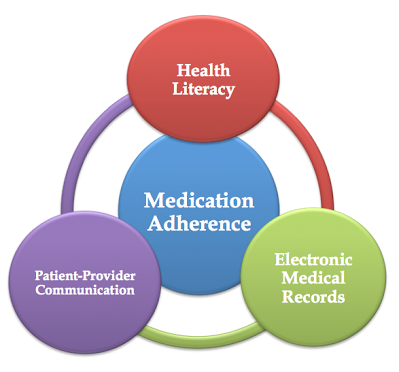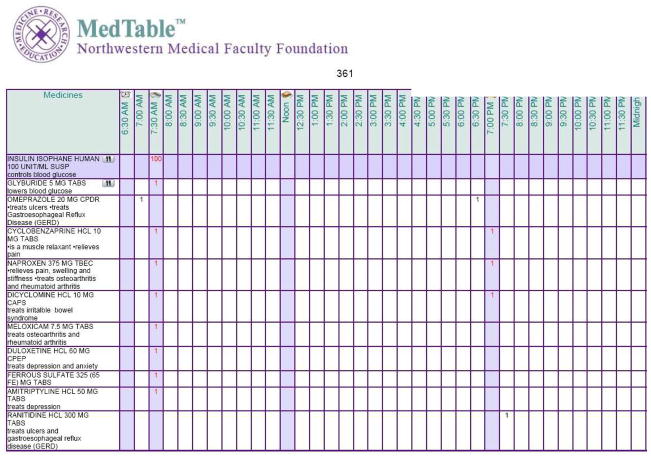Research: Past Projects

Health Literacy and Older Adult Self-Care
The broad goals of the project are to improve self-care (such taking medications) and health outcomes among older adults. Older adults with chronic illnesses such as hypertension (high blood pressure) often have less effective health literacy skills than younger adults do. Health literacy is defined at the ability to access, understand, and use information to make effective health care decisions, and is often measured by your ability to read lists or health-related words or to understand brief health-related texts such as medication instructions. Many earlier studies have shown that older adults with lower health literacy skills tend to have poorer self-care and health outcomes, but we don’t know why. We are investigating how low health literacy undermines health outcomes. The first step is to better understand what abilities are involved in health literacy is and how they influence comprehension of health information. We have three specific goals: to understand the components of health literacy, to investigate the effects of these components on processing health texts, and to examine how to design the health texts for people with lower health literacy.
Publications
Publications

MedTable: EHR-based Support for Medication Adherence
MedtableTM is an Electronic Medical Record (EMR)-integrated tool designed to address the significant problem of medication nonadherence, especially barriers related to patients’ limited cognitive resources and ineffective patient-provider communication. MedtableTM supports the patient-provider collaboration needed to create effective medication schedules that are easy to implement by diverse patients. The tool builds on prior research and, through its integration with EMR systems, creates medication lists and schedules that are more easily updated, more accurate and more reliable. Used in clinical practice, it is expected to improve patient satisfaction, medication understanding and adherence, as well as health outcomes among patients struggling to manage multiple medications.
Publications